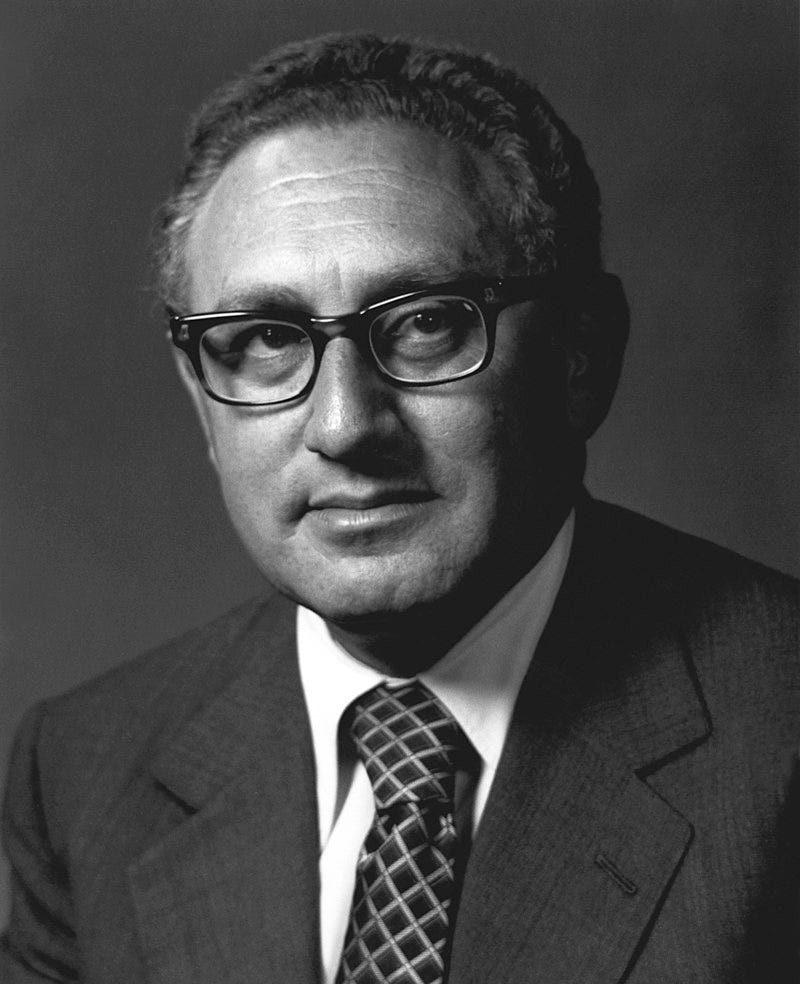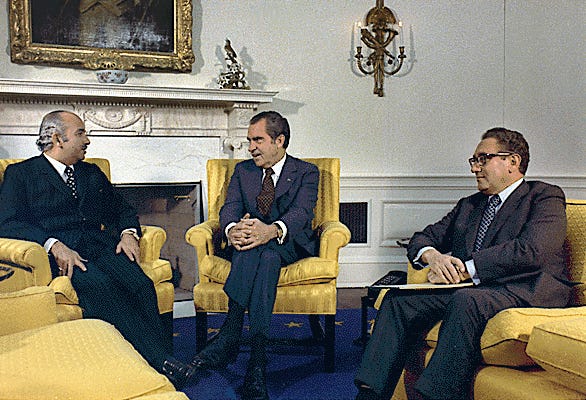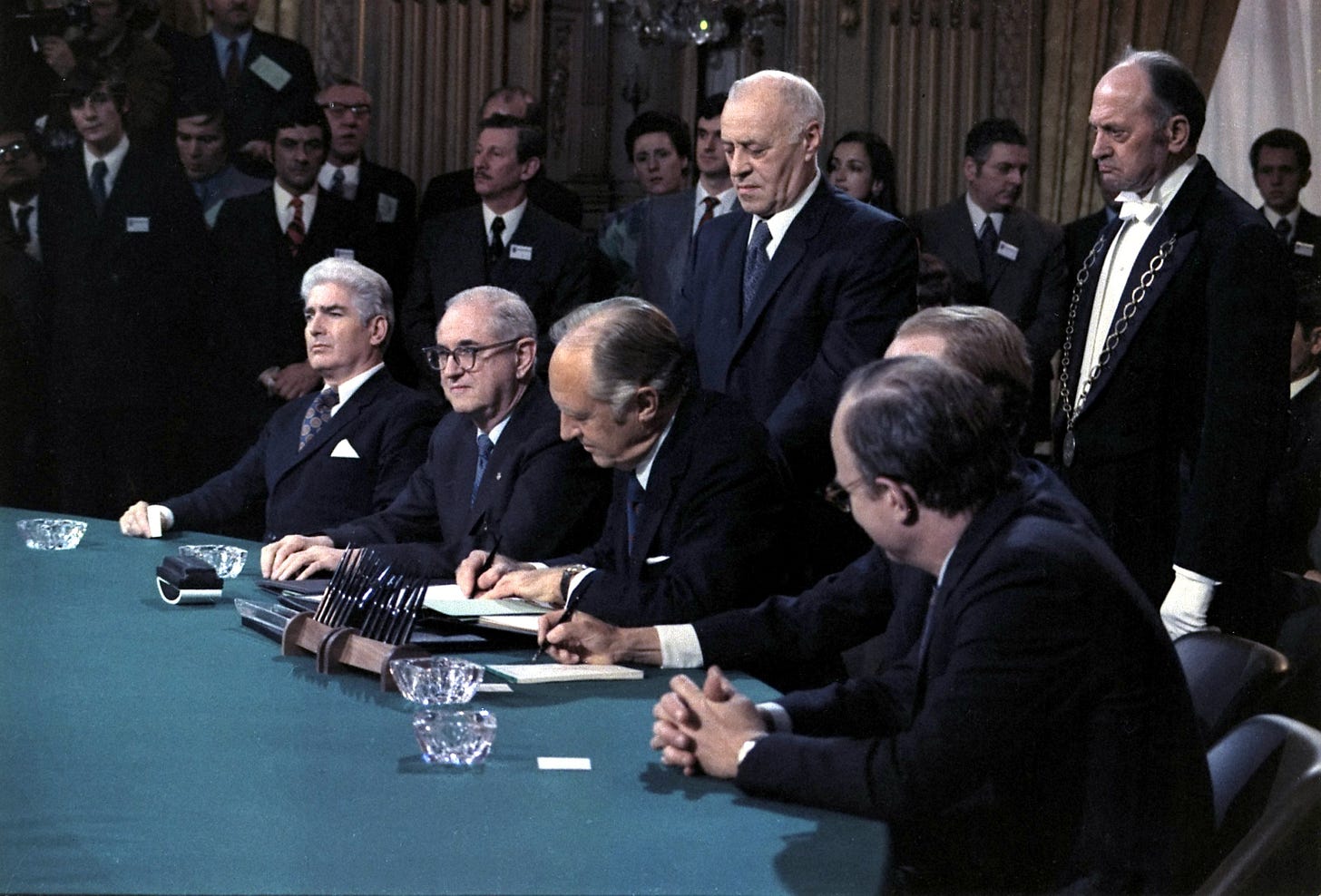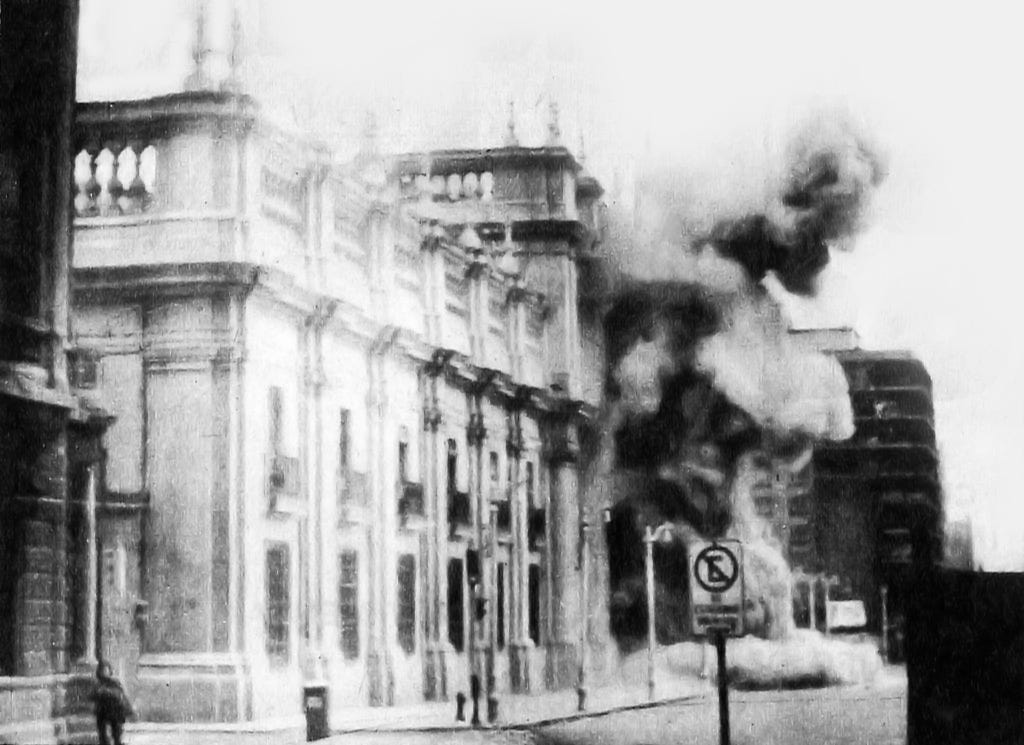Henry Kissinger
He paved the way for US dominance, at a great human cost
US ex Secretary of State, Henry Kissinger, died on Wednesday, November 29th. Here, I will tell you about his foreign policy.
Henry Kissinger was born in Germany, in a Jewish family in Bavaria on May 27th, 1923. He settled with his family in 1938. At 23 years old he joined the Counter Intelligence, and then went to a team to hunt GESTAPO officers.
He pursued the policy of détente, thawing relations with the Soviet Union and China. Kissinger was the only US leader to deal with every Chinese leader from Mao to Xi Ji Ping. The latest described him as an “old friend”. He thought that engagement with China was important because this could lead to a Sino-US alliance against the Soviets.
Kissinger the US top diplomat and national security adviser during the Nixon and Ford administrations. Defined by realpolitik, he did not aim to export values but achieve US interests and expand its country’s influence. His pragmatic doctrine had its view on balance of power.
He mediated in the Yom Kippur war, and led the response. Kissinger criticized the Pentagon for delaying the weapons delivery to Israel. After the Israelis reversed their losses, they nearly reached Cairo. A ceasefire followed then. With his diplomacy, he is credited for paving the way for the Camp David Accords in 1978, although he was already out of office by then. Kissinger would say three years later that his objective was to isolate the Palestinians from their Arab neighbors.
From left to right: Egyptian Prime Minister Ismail Fahmi, US President Richard Nixon, and Kissinger
President Nixon promoted him to the rank of National Security Advisor in 1969.
Bengali nationalists won elections in Eastern Pakistan, later known as Bangladesh. Western Pakistan responded by launching a bloody crackdown. Kissinger chose to do nothing, since Pakistan was seen as a counterweight to a Soviet leaning India and China. In a secret recording, he disdained the people that “bleed” for the “dying Bengalis”. This way, they ignored the pleas from the US Consulate in East Pakistan not only to stop the massacre, but they also approved the transfer of weapons to Pakistan. At least 300,000 people died in East Pakistan. The US Consul there, Archer Blood, was rebuked by Kissinger for “disloyalty”. He also gave the signals to Pakistan they were free to treat the Bengalis as they wished.
Kissinger negotiated the Paris Peace Accords which ended the Vietnam War. He negotiated with the Viet Cong in Paris the withdrawal from southern Vietnam, which earned him the Nobel Peace Prize, although this decision was unpopular. North Vietnam leader Le Duc Tho also won the prize. Kissinger donated the money to the children of American servicemen killed in Vietnam. He tried to return the prize after the fall of South Vietnam. The war was to end four years earlier, but he decided to hear Nixon. Kissinger aimed to have “peace with honour”. Some say that the only aim was to postpone the fall of South Vietnam.
Paris Peace Accords. Source: Wikimedia Commons
Kissinger authorized or ordered the clandestine bombings in Cambodia. 2 million tons of bombs were dropped in the neutral country, killing more than fifty thousand civilians. This was known as Operation Menu. The devices are still killing Cambodians to this day. His actions in Cambodia set the scene for the rise of the Khmer Rouge, which killed a fifth of the population. This was because Cambodians played into the communist hands because of the carpet-bombing campaign.
He was accused of supporting the 1973 coup in Chile, after carrying out diverse actions to overthrow the Allende government. The coup was the culmination of a three year program of investing millions of dollars to overthrow Allende. This included financing opposition newspapers and forging links with the Chilean military.
Source: Biblioteca del Congreso Nacional de Chile
Kissinger was accused of turning a blind eye to the disappearances of the critics of the Argentinian military junta. He gave his seal of approval to them after their overthrow of President Isabel Peron. The junta branded its dissidents as terrorists. Kissinger lauded Jorge Videla for “combating terrorism”.
With these examples, his opponents accused him of prioritizing his geopolitical rivalry with the Soviet Union over human rights.
Turkey invaded Cyprus on 1974 after a coup by Greece ruling military government. Kissinger told President Gerald Ford to appease Turkey. It is reported that he said:
“The Turkish tactics are right-grab what they want and then negotiate on the basis of possession”.
In 1975 he gave the greenlight to the Indonesian invasion of East Timor by President Suharto. The former Portuguese colony was moving towards its independence. Since Suharto was considered an ally in the fight against communism, Ford and Kissinger told him to get it done quickly. Suharto invaded the next day, and with his US equipped army he slaughtered 200,000 people.
Kissinger visited South Africa in 1976, legitimating the apartheid government after the Soweto uprising. Back then, black schoolchildren and others were gunned down by the police. Despite this, he forced Rhodesian Prime Minister Ian Smith to accept black majority rule. On the other hand, Kissinger adhered to support the apartheid government of South Africa because of its support of Unita rebels fighting the Marxist-Leninist People’s Movement for the Liberation of Angola on a 27-year war.
He opened dialogue with China via Prime Minister Zhou Enlai, leading to an improvement between China and the US. This also subsequently put-up pressure on the Soviet Union. The culmination was Nixon’s trip to China in 1972, meeting Mao Ze Tung and Zhou. This ended the 23-year long isolation.
In the mid-seventies, he left office but he continued to be consulted by generations of leaders and decades. However, he remained active behind the scenes of policymaking of the President’s Foreign Intelligence Advisory Board and the Defense Policy Board.
Kissinger criticized Clinton and Carter for going to fast for peace in the Middle East, which he thought could be achieved inch by inch.
Although George W. Bush had asked him to chair the investigation of the 9/11 attacks, he was forced to stand down because of his refusal to reveal his consultancy’s list of clients and answer questions about conflict of interest. Kissinger also advised Bush and Cheney on Iraq. When the insurgency ramped up, he told them that the only option waw victory over them.
He would later retract of some of his radical positions.
He also advised Donald Trump on foreign policy, telling him to accept the Russian occupation of Crimea.
On his last years, he said that Ukraine could join NATO, but after the war. Kissinger testified on 2023 before a Senate committee on the North Korean nuclear threat. He also visited XI Ji Ping by surprise. Even President Biden asked him for advice.
This year he was still promoting a book on leadership styles.
Kissinger leaves a legacy in US foreign policy. First, he shapes decision making during this period, increasing US influence during this time. He also managed to get to peace accords, although perhaps the results weren’t the expected ones. His impact was so big that post-Cold War Presidents took advice from him. However, his legacy is marked by prioritizing geopolitics over ethics and human rights. This part of his legacy also lasts until this day.







